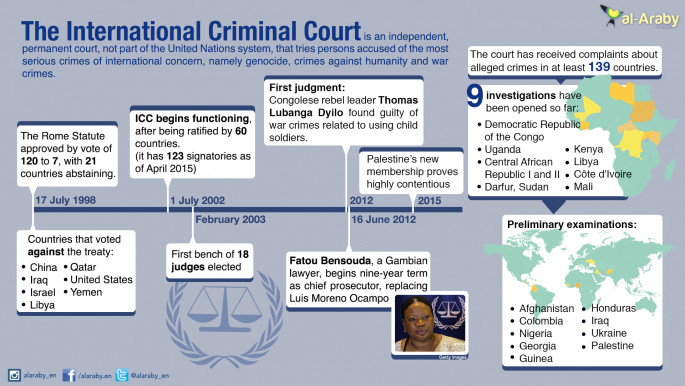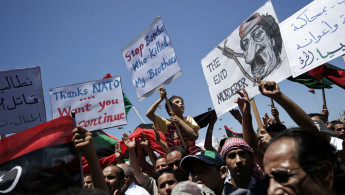International Criminal Court remains a 'work in progress'
The International Criminal Court is a "work in progress", according to an open letter signed by 14 of the world's foreign ministers.
The letter marks the World Day for International Justice, Friday 17 July, which celebrates the adoption of the Rome Statute in 1998 - the founding treaty of the International Criminal Court.
It argues that many of the court's shortcomings are due to the limitations and strictures of the international context in which it operates, not the court itself or its mandate.
The letter describes the court as "a milestone in the fight against impunity for the worst crimes known to mankind".
It was written by Aurelia Frick, foreign minister of Liechtenstein, and counter-signed by nine other European foreign ministers and four more from other countries.
"The failure of the outstanding arrest warrants lies at the feet of states that are not meeting their responsibility to execute them. It is not a failure of the court," the ministers argue.
| The failure of the outstanding arrest warrants lies at the feet of states that are not meeting their responsibility to execute them. It is not a failure of the court - Foreign ministers' letter |
The court is limited both by the numbers of states that have accepted its authority by ratifying its founding document, the Rome Statute, and the politics of the UN Security Council - which can refer cases to the court.
This is behind the perception that the court is primarily concerned with crimes committed in African states, the ministers argue - the African states which the court is currently investigating have ratified the court's founding treaty, and many of the investigations underway were requested by the states themselves.
International politics have prevented investigations in Syria and North Korea, they report.
The ministers call on their fellow politicians and citizens of the world to support the court and ensure that those responsible for atrocities are brought to justice.
Promoting international justice
Yet more than 12 years after it was actually established, the very crimes the International Criminal Court was founded to address are still being committed with impunity in many parts of the world.
The World Day for International Justice promotes the idea of international justice for all, and is being marked by events promoting international criminal justice and the International Criminal Court.
"17 July unites all those supporting justice, promotes victims' rights, and helps prevent crimes that threaten the peace, security and well-being of the world," reads an ICC statement.
The ICC launched a two-week "justice matters" social media campaign on Facebook and a new outreach blog on Tumblr to celebrate The World Day for International Justice.
 |
|
| The notion of international justice is mercurial, and relies on nations signing up to be judged by a central authority [Getty] |
A permanent international tribunal
Based in The Hague in the Netherlands, it is the world's first permanent international criminal court.
The court was formally established on 1 July 2002, when the Rome Statute that founded the court entered into force.
The ICC has jurisdiction over the crimes of genocide, crimes against humanity, war crimes and aggression.
These crimes must have been committed in the territory of a state that is party to the statute, or that has accepted its jurisdiction, or by any of their nationals, if individual if states are unwilling or unable to prosecute.
It also has legal power to investigate other crimes if the UN Security Council refers them to the court. These resolutions are binding for all UN member states.
More than 120 countries worldwide have ratified the Rome Statute. But only three are Arab states - Jordan, Tunisia, and Palestine, which became a full member on 1 April 2015.
The US campaigned for the ICC to be established, and has signed the treaty - but not ratified the statute.
| Many of the court's shortcomings are due to the limitations and strictures of the international context in which it operates. |
The ICC currently has nine official investigations underway, including in Libya and Sudan, with nine preliminary studies - including Iraq and Palestine - and three closed investigations including one on Palestine, which was closed in 2009 because it had the status of "observer" in the UN, not a "non-member" state.
A total of 36 individuals have been indicted by the court, including Sudanese President Omar al-Bashir and Libyan leader Muammar Gaddafi.
| _ _ |
 |



